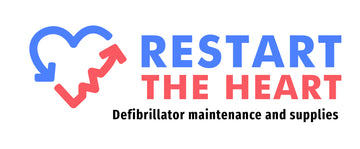Defibrillators in the Workplace: 5 Things You Must Know
Sudden cardiac arrest (SCA) is a leading cause of death worldwide, accounting for around 17.3 million deaths annually. It can happen to anyone, anywhere, and at any time, regardless of age, gender, or ethnicity. Having a defibrillator in the workplace could mean the difference between life and death for an employee or a visitor.
In this blog post, we will discuss the importance of investing in a defibrillator for your business by answering the most popular questions about it.
1. Why Should a Business Invest in a Defibrillator?
Investing in a defibrillator at the workplace can save lives. Sudden cardiac arrest (SCA) is one of the leading causes of death worldwide, and it can happen to anyone at any time, regardless of age or fitness level. Having a defibrillator on-site can significantly increase the chances of survival for an SCA victim.
Here are the key reasons why your business should invest in a defibrillator:
- Time is critical: Every minute that passes during a cardiac arrest without defibrillation decreases the chances of survival by 10%. A defibrillator can provide immediate treatment before emergency services arrive.
- Easy to use: Modern defibrillators are designed to be user-friendly, with clear voice prompts and visual instructions, making it easy for anyone to use them in an emergency.
- Legal requirements: Some jurisdictions require businesses to have defibrillators on-site, especially in high-risk environments or where large numbers of people gather.
- Employee safety: Having a defibrillator on-site shows that you prioritize the safety and well-being of your staff, which can help boost morale and productivity.
2. Where Should a Defibrillator Be Stored?
When choosing where to store your workplace defibrillator, keep the following factors in mind:
- Accessibility: The defibrillator should be stored in a central location that is easily accessible to all employees. Ensure the storage area is clearly marked and free from obstructions.
- Visibility: Place the defibrillator in a highly visible area, with clear signage indicating its location. This will help employees quickly locate the device in an emergency.
- Security: While the defibrillator needs to be accessible, it should also be stored securely to prevent theft or damage.
- Environmental factors: Store the defibrillator in an area free from extreme temperatures, humidity, and direct sunlight, as these factors can affect its functionality.
3. Where Can You Get Defibrillator Training?
While modern defibrillators are designed to be user-friendly, it is still beneficial for employees to receive hands-on training to ensure they are confident in using the device in an emergency. Defibrillator training can be obtained through the following:
- Local first aid providers: Many organizations, such as the American Heart Association, Red Cross, or St John Ambulance, offer defibrillator training courses that can be tailored to your workplace needs.
- Online resources: There are numerous online resources, including videos and tutorials, that can help employees familiarize themselves with the operation of a defibrillator.
- In-house training: Consider having a designated employee who is trained in defibrillator use and can provide regular training sessions for other staff members.
4. Can a Person Be Sued for Using a Defibrillator?
In most jurisdictions, Good Samaritan laws protect individuals who provide emergency assistance, including using a defibrillator, from liability as long as they have acted in good faith and without gross negligence. These laws encourage bystanders to assist in emergencies without fear of legal repercussions.
However, it is essential to check the specific laws in your region to understand the legal protections available.
5. Is a Defibrillator Better than Calling an Ambulance during a Cardiac Arrest?
A defibrillator and calling an ambulance should not be considered separate options but rather complementary actions during a cardiac arrest. When someone experiences a cardiac arrest, immediate CPR and defibrillation are crucial for increasing their chances of survival
However, professional medical assistance is still necessary to provide further care and treatment. Therefore, always call an ambulance while preparing to use a defibrillator.
Final Thoughts
Investing in a defibrillator for your workplace is an essential step in promoting employee safety and well-being. Not only can it save lives in the event of a sudden cardiac arrest, but it can also improve workplace morale, demonstrate legal compliance, and generate positive public relations. It's a small investment with potentially life-saving consequences, making it a worthwhile addition to any business.
If you are looking for a supplier of defibrillators for your business, work with us at Restart the Heart. We are the most trusted defibrillator supplier in Australia, offering even batteries and other accessories. Check out the available options and place your order now!

